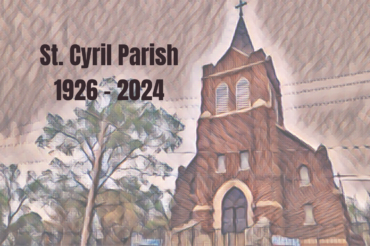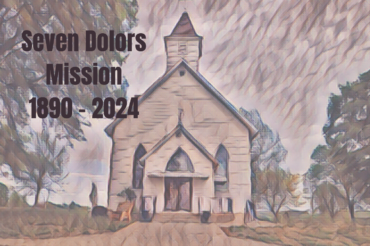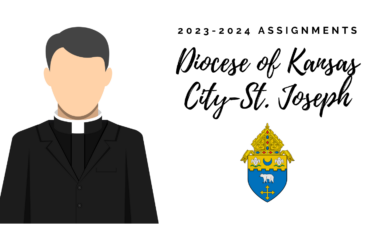Building a relationship with Jesus
(‘The Preaching of St. John the Baptist’ by Alessandro Allori, c. 1601-1603, oil on copper.)

God’s Word in Everyday Living
Deacon Scott McKellar
Advent is a season of watching and preparing. At this time of year, many people are cleaning, decorating their houses and buying gifts, in order to be ready for the celebration of Christmas. In a spiritual sense, we are preparing to welcome Jesus who is our most esteemed guest this Christmas.
John the Baptist is the perfect patron for Advent. John called people to acknowledge their sins and repent. He asked them to make a commitment to change their lives and to give witness to this commitment through a baptism of repentance.
Although there are some similarities, John the Baptist’s baptism was not yet a Christian sacrament. He reminds us that Jesus is “the one mightier than him,” that Christ would baptize with the “Holy Spirit and fire.”
It is interesting to note that knowledge and credentials do not guarantee that one is on the right path spiritually. John tells the Pharisees and Sadducees to produce fruit in keeping with repentance and rebukes their ‘presumption’ that they will be saved merely because of their religious background and training.
As someone has wisely said, ‘God has no grandchildren.’ We cannot presume that because of the faith of our family, school or parish, that we necessarily have personal faith ourselves.
John the Baptist is offering people a chance for conversion. Our bishops have defined conversion as “the acceptance of a personal relationship with Christ, a sincere adherence to him, and a willingness to conform one’s life to his. Conversion to Christ involves making a genuine commitment to him and a personal decision to follow him as his disciple” (NDC, p. 46).
Many people seem to think of conversion as a light switch. They might think that to experience conversion you need to be in darkness and then to suddenly turn on the light. We might get this impression from John the Baptist who starkly cries out, “Repent, for the kingdom of heaven is at hand!”
There has been a renewed interest recently in studying how conversion or spiritual change occurs in the lives of Christians. While clearly some people do undergo sudden dramatic conversions, we have discovered that for most people, conversion is an ongoing process with definable stages.
Because conversion is primarily about relationship and the heart, a helpful comparison might be the process one might go through to make a decision to get married. We need to journey through the early stages of getting to know someone, and then eventually as the relationship deepens, to develop personal trust and attachment. It is only after journeying to a place of deep trust and attachment that a couple thinks of forming an exclusive, permanent lifelong commitment.
So, we might ask, if we want to experience deeper conversion in our faith, do we start by dating Jesus? This question definitely sounds odd, but there is an element of truth in it. When interviewed about their faith, a large number of people said they came to a deeper and more meaningful relationship with Christ by spending time alone with Christ either in prayer or in the devotional reading of the Bible.
At some point, these individuals begin to spend time alone with God and to pray and listen to him in their hearts. This is not time spent reciting prayers, but a time of conversational prayer with God. It is through a personal relationship with Christ that we learn to trust and attach ourselves to Christ, and then ultimately become willing to conform our lives to his.
Other Christians describe a similar experience of spiritual awakening, but instead of focusing on prayer, they describe an encounter with Christ through Sacred Scripture. In a sense, this is another way to begin to listen to God and to become aware that he is alive and interested in our lives.
This is not just studying the Bible as history, or as a great narrative story. When these people describe the change that has taken place, they have discovered that the Scriptures have a practical meaning for their life. They began to ask themselves, what does this passage mean to my life? Or perhaps, what is God saying to me personally in this passage? Again, the important point is that the Bible becomes a means to develop relationship with God.
While certain people have emphasized either prayer or Sacred Scripture as their primary means of change, it is obvious that both of these practices work together. We can spend time alone with God and read the Scriptures asking ourselves what God is saying to us personally. We can then talk to God about what we have discovered while relating it to our life and needs in conversation with God.
This is precisely the method suggested by St. Teresa of Avila for a time of prayer and reflection on Sacred Scripture. She suggests we begin with a time of preparation and adoration. Set aside your immediate thoughts and concerns and enter into an attitude of prayer. We can offer him our adoration in words of love. We then read a passage from Sacred Scripture and consider its meaning.
Next, having given ourselves some material to think about, we begin a loving conversation with our Lord. We can express our love for him and thank him for his favors to us. We can tell him the things that burden us and take time to petition him. We can relate this to the Scripture we have just read and ask him for further insight and application.
Finally, we can ask him for the courage to make new resolutions and to examine ourselves on our spiritual progress. We can conclude our time of prayer with an act of thanksgiving.
Imagine what would happen in our homes and parishes this Advent, if each one of us would commit to spending regular time alone with Jesus in prayer and in meditation on Sacred Scripture.
Deacon Scott McKellar is pastoral associate at St. Therese Parish, North.
For this Sunday’s scripture readings and readings throughout the year, visit the USCCB website.





